Rat Control of Tulsa
Welcome to Rat Control of Tulsa! We are Oklahoma rodent control specialists. Our specialty is rat and mouse control. Our special 32-point process is the single most effective method in the country for permanently solving rodent problems inside houses and buildings. We are not a typical pest control Tulsa rodent exterminator company that treats rodents in a similar way to insects, with repeated monthly or quarterly poison treatments. That's a never-ending process. We solve the problem ONCE, and PERMANENTLY, by thoroughly inspecting every component of your building and completely sealing shut all access points, to 100% rodent-proof your house. We physically trap and remove all rats or mice, a process that is completely effective once all access has been closed. The problem is soved forever, usually in a week or less. Click on our Tulsa Prices page to find out more about our prices for rat control work. Or give us a call any time to schedule an appointment, usually within the next day. We look forward to hearing from you.
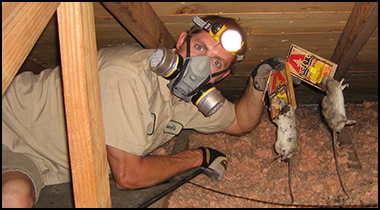
Tulsa Rat Trapping

Rodent-Proofing Repairs
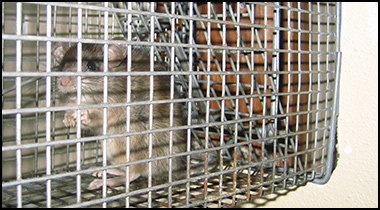
Humane Exclusion Options
Call 24/7 to discuss your rat problem.
Same-day or next-day appointments: 918-347-5080
32-point inspection of your property.
Written estimates for rat project.
Fully Oklahoma licensed and insured.
Rat-proofing repairs with steel.
100% of rodents trapped and removed.
Chewed wire and damage repair services.
Rat dropping cleanup and sanitation services.
Poison-free rodent control methods.
Our Service Range - 918-347-5080
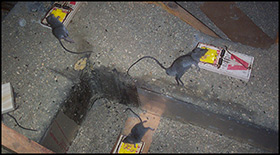
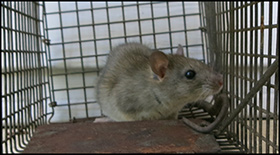
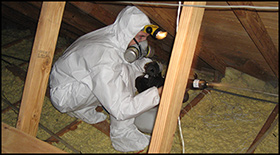
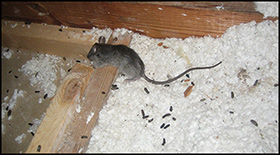
Cage traps are potentially useful and a very popular form of getting rid of the rat infestation, but it is not necessarily the best option nor is it a good option. Usually, the only time rats should be caged are when they are being kept in captivity because relocating trapped rats, rarely survive.
Any trapped animal becomes frantic, leading to heightened stress and potential dehydration and starvation may occur. These occurrences can weaken the animal, in this case, the rat, causing them to be vulnerable targets for other animals since they would not be able to escape in time. They may even succumb to the exhaustion and thus die upon being released.
You also risk physically hurting the rats when setting up cage traps. Rats have very long tails and may not be fully inside the cage before it snaps close. This may result in the rat losing its tail and bleeding out on inside the trap and maybe even screaming out in pain. If the tail gets caught in the trap door and the door does not fully close, the rat can force its way out, even breaking a toe or other limb. You also risk having the mother's separated from their young ones who are both blind and deaf when they are born.
Even if you trap a rat and release it away from where it was residing previously, the rat would be placed in surroundings it is unfamiliar with, having to search again for somewhere to seek shelter before they are snatched up by a predator. Searching for food may even take them longer as they would have to firstly, hide from the dangers around them and secondly, they would not know where they can find food. Again, their survival rate is reduced drastically.
Another issue with caging rats is that if you relocate them close to a large body of fresh water, they may contaminate it, causing more harm to hundreds and thousands of other animals and humans. The safest option for you when you have a rat infestation, is to hire professionals who are licensed in what they do. For every action there is an equal and opposite reaction so think about the consequences before you try to implement the cure. Trapping rats in cages are a very inhumane action for you to do.
After the professionals have successfully ridded you of the rat infestation, you need to have your home thoroughly cleaned and rat-proofed. Rate urine and feces are deadly when humans and other animals are exposed to it, causing many life-threatening illnesses. Since rats defecate where they live, you would definitely have rat poop and urine all over the area in which they sought shelter. You should protect yourself from head to toe before you enter the area, even wearing dust masks as some diseases are airborne. A mixture of bleach and water can destroy most of the bacteria, but you can also hire a professional to do this so that you do not expose yourself to harm.

